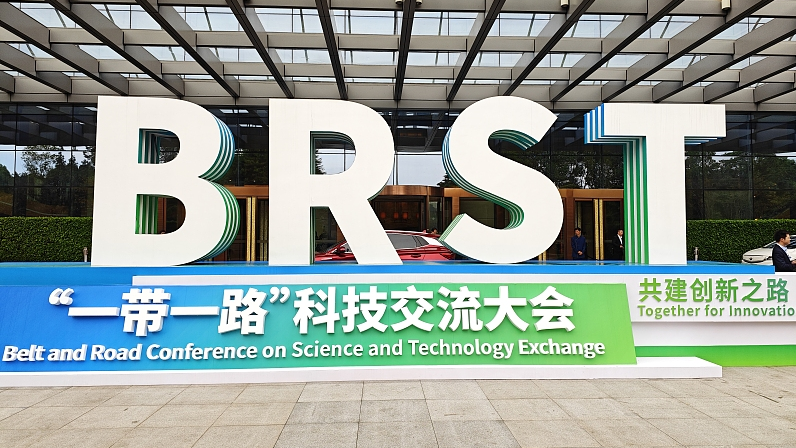The first Belt and Road Conference on Science and Technology Exchange kicked off in southwest China's Chongqing Municipality on Monday.
Themed "Together for Innovation, Development for All," the conference is co-hosted by the Ministry of Science and Technology, the Chinese Academy of Sciences, the Chinese Academy of Engineering, the China Association for Science and Technology, the Chongqing Municipal People's Government, and the Sichuan Provincial People's Government.
China has achieved significant results in technological innovation under the Belt and Road Initiative (BRI) cooperation since the initiative was proposed a decade ago, according to the conference.
China has signed inter-governmental science and technology cooperation agreements with more than 80 BRI partners, jointly building a comprehensive, multi-level, and wide-ranging science and technology cooperation pattern.
China also established an intellectual property cooperation partnership with over 50 BRI partners.
More than 10,000 young science researchers from BRI partner countries have taken short visits and exchanges to China and training sessions have been provided for over 16,000 technology and management personnel from BRI partner nations.
China and BRI partner countries have collaborated on over 1,000 research projects and jointly set up 53 BRI laboratories in agriculture, new energy, nature and health.
The country also has built nine transnational technology transfer centers, aiming to forge cooperation with countries of the Association of Southeast Asian Nations (ASEAN), South Asia, Central Asia, Arabic countries, Central and Eastern European countries, Brazil, Russia, India, China, and South Africa (BRICS), Africa, Shanghai Cooperation Organisation (SCO) member states and Latin America.
China has signed agreements with nine countries, including South Africa, Mongolia and Argentina, on cooperation among technology industrial parks, pushing close technology exchanges.
China expanded its scientific research with BRI partners in telecommunication, artificial intelligence, clean energy and space exploration, and joint technology development in remote sensing satellites, digital economy, railways and ports.
In addition, China and BRI partner countries rolled out collaborations in archaeology research and cultural relics protection.
From November 6 to 7, the conference will focus on inter-governmental cooperation and people-to-people exchanges in science and technology, industrial innovation and development, paradigm change in scientific research, future medicine, open science and big data.
Over 300 foreign participants from more than 70 countries and international organizations have been invited to the conference, including Nobel Prize winners, academicians, experts, scholars and university presidents.


